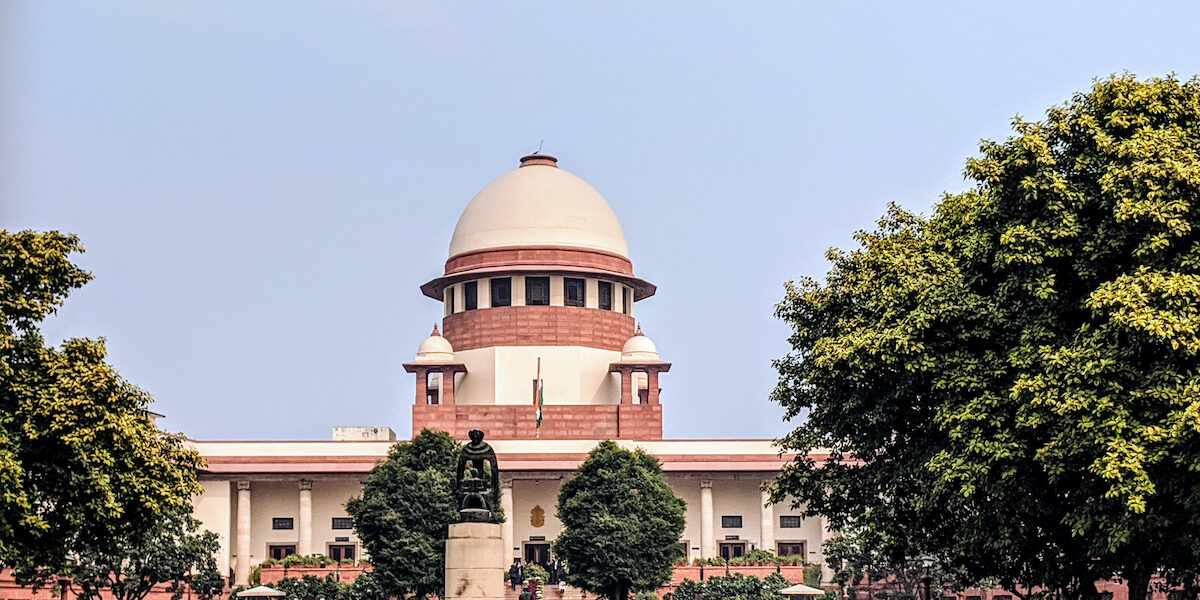The Supreme Court bench referred to Article 293 of the Constitution, which deals with borrowing by states.

The Supreme Court of India. (iStock)
The Supreme Court on Monday, 1 April, referred to a five-judge Constitution bench specific constitutional questions arising out of the Kerala government’s suit on the Centre’s ceiling on net borrowing of states.
The court, however, refused to give interim relief Kerala sought for additional borrowing for 2023-24.
The Court observed that the State received substantial relief for the financial year from the Union following the court’s intervention.
The Court also stated that the prima facie case and the balance of convenience favoured the Union Government.
A bench of Justices Surya Kant and KV Viswanathan noted that the suit raised issues regarding the interpretation of Articles 131 and 293 of the Constitution.
The bench referred to Article 293 of the Constitution, which deals with borrowing by states. It said this provision has not been subject to any authoritative interpretation by the apex court.
Whether Article 293 grants states an enforceable right to borrow from the government and other sources and, if so, to what extent the Union can regulate it.
Additionally, the question of whether borrowing by state-owned enterprises and liabilities arising from public accounts should fall within the purview of Article 293(3) of the Constitution and the scope of judicial review regarding fiscal policy is also under scrutiny.
LiveLaw reports the court refused to pass orders on the interim relief Kerala sought for additional borrowing for 2023-24.
Regarding interim relief, the court applied the triple tests —prima facie case, balance of convenience, and irreparable injury.
It felt the Centre had a point that deductions can occur in subsequent years if a State exceeds limits in a financial year.
The court acknowledged that the State received substantial relief following the Court’s intervention.
The Court noted that it had disapproved of a condition imposed by the Union that the State should withdraw the suit for getting consent for additional borrowing of ₹13,608 crore.
Also, in a meeting held on 8 March, the Union offered consent for ₹5,000 crore.
The Union government informed the Supreme Court on 13 March that it would allow Kerala to borrow an additional ₹5,000 crore as a one-time measure in the current financial year ending 31 March.
Kerala had said the amount was too small.
On 19 March, the Union consented to ₹8,742 crore and ₹4,866 crore, totalling ₹13,608 crore.
Against this backdrop, the Court noted that the State has secured substantial relief for the financial year 2023-24.
Kerala demanded a directive to the Centre to lift the curbs on states’ borrowing limits. It wanted an immediate release of ₹19,000 crore that the Centre owed the state. Kerala thus insisted that the state had a ‘strong case’ for interim relief.
Kerala Finance Minister KN Balagopal welcomed the decision of the Supreme Court.
Balagopal said the interim order of the Supreme Court was an important one for the state as well as the nation.
“The most important thing is that it was the first case in the country to deal with fiscal federalism. The BJP government and the opposition UDF in Kerala were claiming that there was no basis for our arguments. But now the apex court has referred the matter to a Constitutional bench,” Balagopal told the media in Kollam.
In an original suit under Article 131, Kerala said the Constitution bestows fiscal autonomy upon states to regulate finances. It argued that state legislation regulates the borrowing limits or the extent of such borrowings.
Article 131 of the Constitution deals with the apex court’s original jurisdiction in any dispute between the Centre and states.
The suit said the state must determine borrowing to balance the budget. Making up for the fiscal deficit is exclusively within the state’s domain.
“If the state is not able to borrow to the extent required based on its budget, the state would not be able to complete its plans for the particular financial year,” it said.
(With PTI inputs)

Jul 26, 2024

Jul 26, 2024

Jul 26, 2024

Jul 25, 2024

Jul 25, 2024

Jul 25, 2024